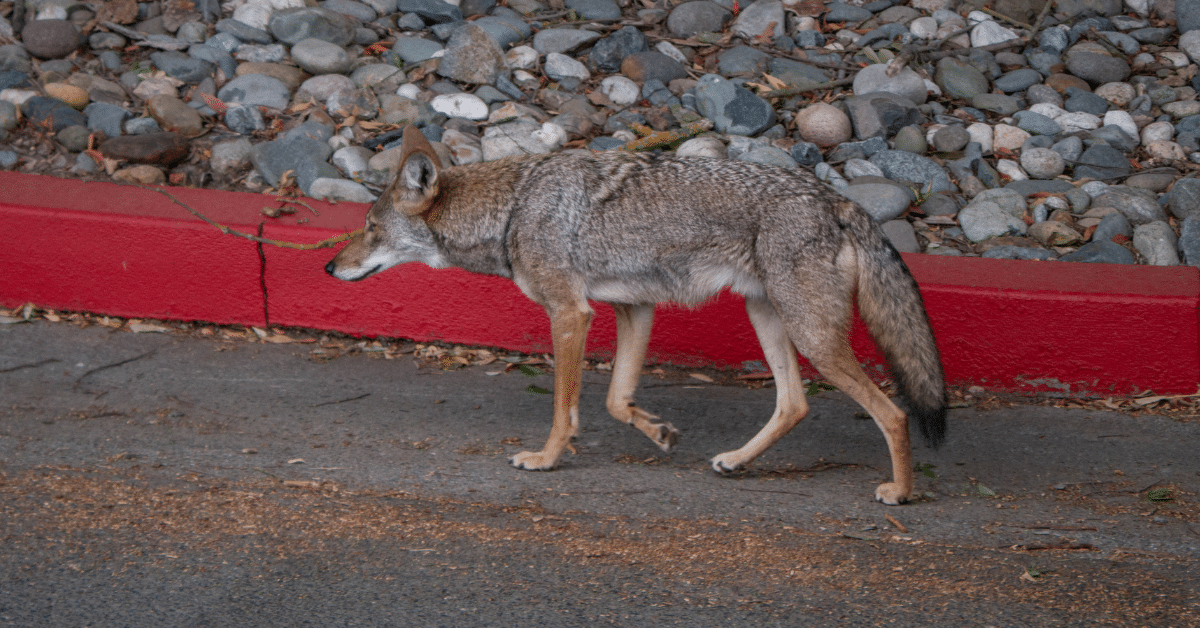No products in the cart.
The Truth Behind the Coyote Populations and Hunting Contests

Hunter Nation has directly engaged in an ongoing battle over whether or not predator calling competitions should continue in Virginia's Commonwealth. This issue was an interesting one to me so I talked to our team on why this is such an important issue to the future of hunting and here’s what I learned.
Although organizations like Project Coyote and the Humane Society of the U.S. (HSUS) want to ban the coyote hunting contests in Virginia and everywhere they exist, the necessity to responsibly manage the coyote population and to keep these ethical traditions going is why they cannot win. National anti-hunting organizations like HSUS, who want to shut down these hunting contests, say that these contests are unethical and cause damage to the ecosystem that the coyotes populate.
The most troubling thing about these organizations is their very bold statements about how the coyote population does not need to be maintained and how they openly deny factual accounts of the negative impact coyotes have on livestock, pets, and civilian life in both rural and urban areas. In an article by the HSUS organization about the idea of maintaining the population of coyotes, they wrote, “... such pronouncements are not borne out by scientific research, and are being debunked by a growing number of wildlife management agencies and professionals.” If these accusations are true, why is it that we; as taxpayers, pay twenty million dollars a year for the government to do the exact same thing that we hunters want to do? You read that right, $20 million per year is paid out in the form of wildlife damage abatement payments to ranchers, farmers, pet owners and others who have lost livestock or pets to predators like the coyote each year. The economic facts are undeniable -coyotes are indeed posing a threat to the safety of the agriculture and livestock of these areas.
In 2020, taxpayers across the country paid around twenty million dollars through the USDA (United States Department of Agriculture) to manage predator populations. Including the wolf, coyote, and other species that we as hunters were either not allowed to manage, or supposedly could not manage on our own. The USDA kills over 80,000 coyotes annually in the U.S., and does so very efficiently. They will kill on average about 100 coyotes in a day by trained specialists that are being paid by the government with taxpayer’s dollars.
After reading these facts, I was left wondering why don’t the anti-hunting organizations who are trying to ban hunters from being a part of the management solution on predators don’t talk about why the government is using $20 million dollars of our money to manage these populations of coyotes, leading to the coyote being labeled as a nuisance species in Virginia’s Department of Wildlife Resources.
I think they are silent on the taxpayer funded management of predators because it doesn’t fit their narrative - of hunting bad, predators good. This crazy assumption that the coyotes don’t need to be maintained is completely debunked by the actions and statements of the USDA. If the coyotes have to be maintained by the government, then these organizations should not be attacking the hunters that are paying hundreds of thousands of dollars each year in license fees in Virginia to legally pursue these predators and carrying on the hunting traditions that have been a part of the Commonwealth since it became the first of the original 13 colonies in 1781.
In Coyote Ecology and Damage Management, the USDA clearly states that coyotes damage agriculture, livestock, and humans. In addition, these coyotes are known to carry tapeworms, rabies, and other diseases which are harmful to both humans and pets. There have been many situations where dogs have been killed by coyotes just for their entertainment. These homeowners have even put up 6 foot high fences, but to no avail when they find out the coyote either jumped or climbed over the fence to kill their innocent pets. So if HSUS is against animal cruelty, why do they support anti-hunting initiatives like the predator calling competition ban that allows coyotes to wreak havoc on pets and livestock? Maybe it’s because the fact is that predator hunting is a fun and ethical way of hunting animals that not only saves lives, but increases the economy of the fur business in America.
The ethics behind these hunts have been greatly explained in our last article about the Virginia hunting contests by Kyle Crickenburger - the leader of a predator hunters group that we’ve partnered with in Virginia to try and stop the ban. These traditions have been rooted in our nation's very existence, and taking them away is going against our constitutionally protected right to hunt which was placed in the Virginia Commonwealth’s constitution in 2001. Unfortunately, the false narrative being pushed by the anti-hunting groups about these hunting contests is that they are only unethical and evil ways of killing coyotes for sport. However, if you take the time to listen to the testimony provided by the hunters who pursue this sport, live this lifestyle and do so legally and ethically within the bounds of the Virginia laws - it is clear to me that these contests must be allowed to continue.
While this is going to be an ongoing, uphill battle - the good news is that hunters can make their voices heard on this issue. If you share our belief that predator management must continue to be a part of our ongoing American Conservation Model, then please take the time to contact the members of the Virginia Game Commission and encourage them to vote against the predator calling competition ban. In doing so, we are not just shutting down this ban against these coyote hunts, but also telling them that they cannot take away our liberties given to us by the very constitution they have sworn to withhold.
I hope you enjoy this column. I look forward to hearing your thoughts and feedback, please email me at [email protected] and let me know what you think. Over the next several weeks, I will be focusing this column on the five pillars of Hunter Nation’s strategy and why each of those areas is so important to us accomplishing our mission of protecting God, Family, Country, and the future of our outdoor lifestyle. Stay tuned and until next week, happy hunting, tight lines, and God Bless.
